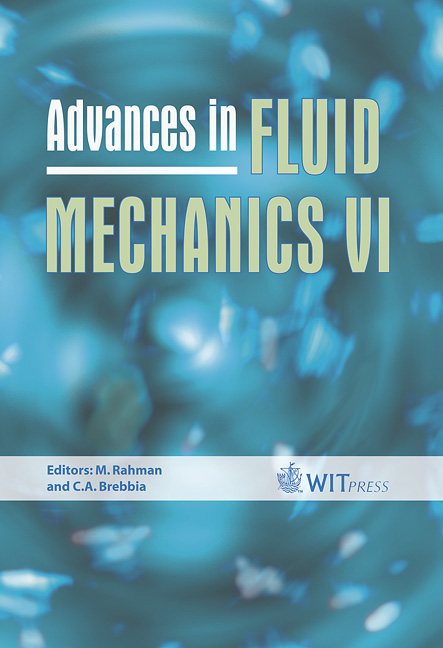A Parallel ILU Strategy For Solving Navier-Stokes Equations On An Unstructured 3D Mesh
Price
Free (open access)
Transaction
Volume
52
Pages
8
Published
2006
Size
4,436 kb
Paper DOI
10.2495/AFM060041
Copyright
WIT Press
Author(s)
Ø. Staff & S. Ø. Wille
Abstract
An iterative algorithm for solving a mixed finite element formulation of Navier- Stokes equations on a distributed memory computer is presented. The solver is a Krylov subspace method with a parallel preconditioner suitable for high latency clusters. Nodes are pivoted to minimize the number of synchronization points in each solver iteration. An unstructured mesh is decomposed into non-overlapping subdomains. Each node is given a category depending on which subdomains it is a member of and on the subdomains of its neighboring nodes in the mesh. Based on these categories, an a priori pivoting suited for parallel solution is constructed. The solver requires approximately the same number of iterations as good serial solvers with a similar preconditioner. The incomplete LU (ILU) preconditioning and subsequent solve is performed on a global matrix implicitly formed as a sum of all subdomain matrices. Communication overhead is kept low by generating a schedule to send information to neighboring subdomains as soon as dependencies in the matrix are resolved. Results will be shown to indicate that this is a viable strategy on computer clusters built with cheap off the shelf components. Keywords: ILU, preconditioning, parallel, unstructuredmesh, CFD, Navier-Stokes. 1 Introduction Simulations on single processors are often limited by CPU speed and available central memory. Even fairly modest three dimensional problems can surpass what
Keywords
ILU, preconditioning, parallel, unstructuredmesh, CFD, Navier-Stokes.





